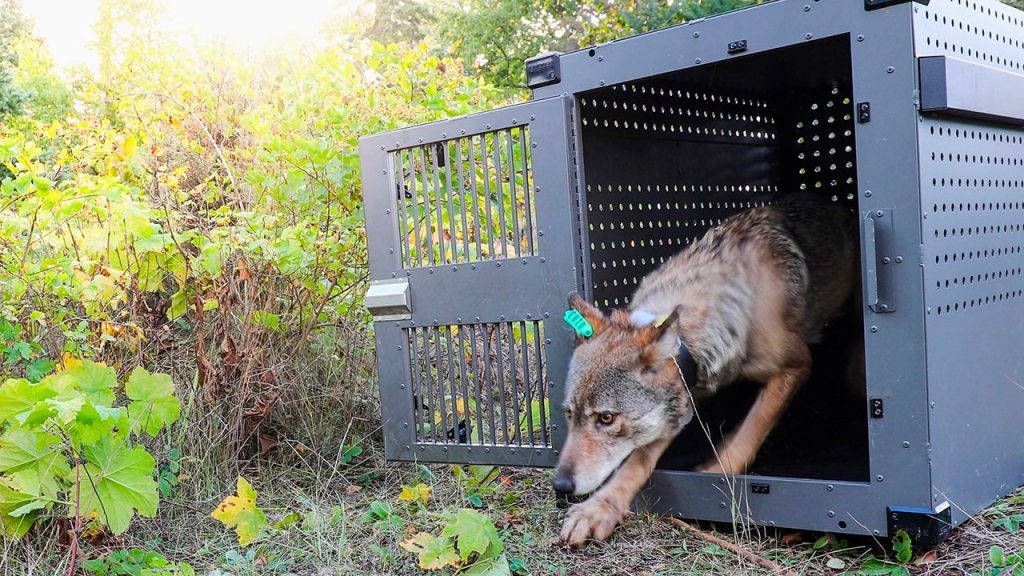Researchers conducting an annual wildlife survey on Isle Royale, a remote island in Lake Superior, were forced to cut short their study due to unusually warm weather. Despite this setback, they were able to gather data showing that the wolf population on the island remains stable. The researchers typically conduct aerial surveys using skiplanes to observe wolves and moose on the island, but were unable to continue due to unsafe ice conditions caused by the warm temperatures.
The team of researchers, led by Michigan Tech University, found that the wolf population on Isle Royale stands at 30 animals, down slightly from 31 animals the previous year but up from 28 in 2022. The wolves appear to have divided themselves into four packs, with one pack consisting of at least 13 wolves. Additionally, at least one wolf was observed living alone. The moose population on the island, on the other hand, decreased by 14% from the previous year to 840 animals. Overall, the moose population has declined by nearly 60% since its peak in 2019.
In previous years, most moose on Isle Royale died from starvation due to overpopulation and lack of food. However, this year’s decline in the moose population is believed to be linked to increased wolf predation. The scientists noted that fewer moose are giving birth, with less than 6% of the moose observed this winter being calves. This percentage is higher than last year’s estimate of 2%, but still significantly below the long-term average of 13%.
Isle Royale, known for its unique ecosystem and wildlife, provides researchers with a rare opportunity to study wolves and moose in a natural setting without human interference. The annual surveys conducted on the island have been ongoing since 1958, with the exception of 2021 when the pandemic forced researchers to cancel. Despite the challenges faced by the researchers this year, the data collected provides valuable insights into the dynamics of the wolf and moose populations on the island.
The scientists expressed concern over the decline in the moose population on Isle Royale and the impact of increased wolf predation. The balance between predator and prey populations is crucial for the overall health of the ecosystem, and the researchers will continue to monitor and study the wildlife on the island to understand these dynamics. The data collected by the team before their evacuation from the island will help inform future conservation efforts and management strategies for the wildlife on Isle Royale.


